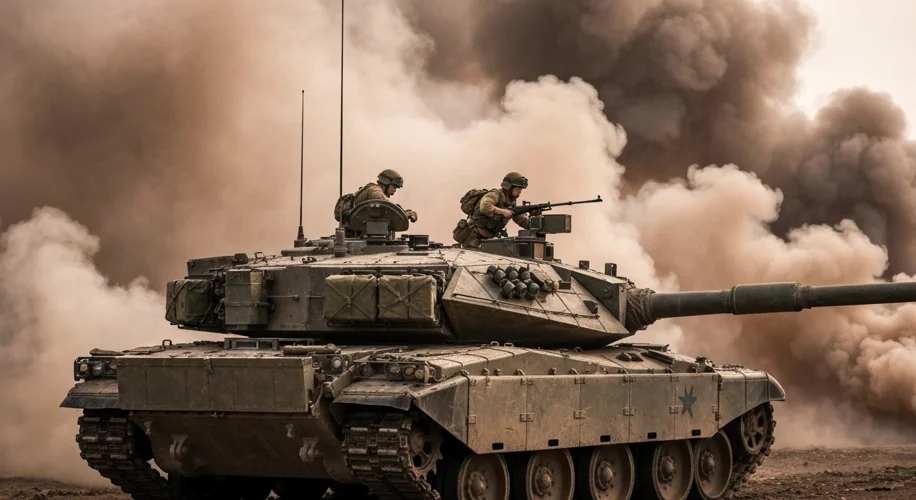The air in the command bunkers, heavy with the scent of stale coffee and suppressed anxiety, was a stark contrast to the crisp autumn breeze outside. It was October 1973, and for Israel, the holiest day of the year, Yom Kippur, had become a day of unimaginable shock.
On that fateful Saturday, as Jewish families gathered for solemn prayer and reflection, a thunderous onslaught began. Egypt and Syria, former adversaries, launched a coordinated surprise attack, overwhelming the Israeli Defense Forces (IDF) on two fronts. Tanks rumbled across the Suez Canal, and Syrian forces surged into the Golan Heights. The initial hours were a maelstrom of confusion and heavy losses. The question that would haunt the nation for decades was not if the enemy would attack, but when and how the intelligence apparatus, the very shield of Israel, had failed so catastrophically.
Decades later, the specter of intelligence failure looms large once more. A former IDF intelligence chief, speaking with the heavy wisdom of hindsight, has suggested that the intelligence lapses preceding the October 7th events were “much deeper” than previously understood. This assertion inevitably draws a chilling parallel to the Yom Kippur War, a historical wound that offers critical lessons about the fragility of perceived security and the devastating consequences of blind spots.

To understand the magnitude of the Yom Kippur failure, one must first grasp the prevailing atmosphere in Israel in the years leading up to the war. Following the decisive victory in the Six-Day War of 1967, a sense of overconfidence, often termed the “Halutziut” or pioneering spirit, had permeated the nation. The IDF was considered invincible, its intelligence superior, its defenses impregnable. This perception, however, bred a dangerous complacency.
The intelligence community, though possessing pieces of the puzzle, failed to assemble them into a coherent warning. Reports indicated Egyptian and Syrian military build-ups, troop movements, and increased readiness. Yet, these signals were largely dismissed or misinterpreted. Key intelligence assessments, such as the Agranat Commission’s later findings, pointed to a systemic failure: a reliance on outdated assumptions, a reluctance to challenge prevailing doctrines, and an underestimation of the enemy’s resolve and capability. The narrative was that the Arabs would not dare attack again after the drubbing of 1967, and certainly not on Yom Kippur, a day of religious observance.
Leading figures like Major General Eli Zeira, the head of military intelligence at the time, bore the brunt of the criticism. While Zeira and his colleagues genuinely believed they were doing their best, the analysis was flawed. They were blindsided by the sheer audacity of the coordinated offensive, a testament to Egyptian President Anwar Sadat’s strategic brilliance and Syrian President Hafez al-Assad’s determination.
The war itself was a brutal crucible. For the first few days, Israel fought for its very survival. The initial intelligence void created a desperate scramble, with reservists rushing to the front lines and a desperate race against time to mobilize the nation. The psychological impact of being caught off guard, of facing an existential threat while seemingly unprepared, was profound.
The aftermath of the Yom Kippur War was a period of intense self-examination. The Agranat Commission’s report, published in 1975, was scathing in its indictment of the intelligence and military leadership. It led to significant reforms within the IDF and its intelligence branches. The war served as a brutal, life-or-death lesson: intelligence is not merely about collecting data; it is about accurate analysis, challenging assumptions, and fostering an environment where uncomfortable truths can be voiced and acted upon.
Today, as we hear echoes of past failures in contemporary assessments, the lessons of 1973 remain acutely relevant. The “deeper” failures suggested by former intelligence chiefs warn of a potential resurgence of the very complacency that paved the way for the Yom Kippur disaster. History, as the saying goes, doesn’t repeat itself, but it often rhymes. The Yom Kippur War stands as a solemn reminder that in the realm of national security, the most dangerous enemy can often be the one found within our own assumptions and the perceived invincibility of our defenses. The continuous, rigorous challenge of our own understanding is not a luxury; it is a necessity for survival.

